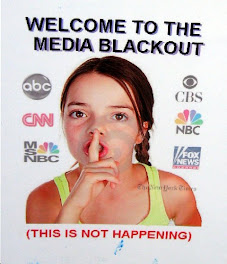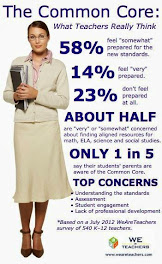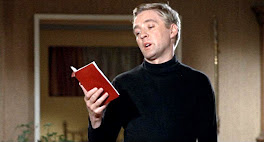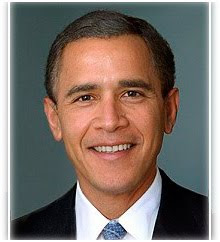How Pop Culture Influences Political Expectations
Saturday 25 February 2012
by: Bill Moyers, Moyers & Co. | Interview and Video
Film historian and culture critic Neal Gabler joins Bill Moyers to discuss how representations of heroism in movies shape our expectations of a U.S. president, and how our real-world candidates are packaged into superficial, two-dimensional personas designed to appeal to both the electorate and the media. As a result, says Gabler, we never get to the true pressing questions and issues of America.
“We love candidates who speak their mind in movies,” Gabler tells Moyers, adding that the same is not true for real life. “Movies are clean; democracy is a mess.”
Neil Gabler on How Pop Culture Influences Political Culture from BillMoyers.com on Vimeo.
BILL MOYERS: For all its many qualities, including some fine acting, “Contagion” was frozen out of the Oscars—not a single nomination. In fact, none of my favorites were nominated. Nonetheless, let’s go to the movies for some insights on our politics today, because when it comes to storytelling, Hollywood and Washington are co-dependents. Political conspiracies, skullduggery, and infighting have long provided solid plotlines for moviemakers. In turn, politicians try to embrace the values that movies depict as the noblest virtues of the American character: selfless courage, patriotism, sincerity and compassion. Both know that movie entertainment informs our image of what leaders should be but at the very same time capably and handily distracts us from certain grim truths.
So we’ve chosen this moment to talk with Neal Gabler, the historian of culture and film who expertly interprets how movies reflect our society and politics. Here in New York, Neal Gabler is an indispensable Saturday night guide to the movies on our flagship public station WNET/Thirteen.
NEAL GABLER on Reel 13: Welcome to Reel 13. I’m Neal Gabler.
BILL MOYERS: His books include biographies of Walt Disney and the powerful gossip columnist Walter Winchell, this one An Empire of Their Own: How the Jews Invented Hollywood and my favorite, Life the Movie: How Entertainment Conquered Reality. He’s back in town after a semester as a fellow at Harvard’s Kennedy School of Government. Welcome home, Neal.
NEAL GABLER: Thank you very much.
BILL MOYERS: When you say life's a movie what are you saying?
NEAL GABLER: What I'm saying is that life itself has become an entertainment medium, that we are all actors in, and audience for, an ongoing show, that we have so steeped ourselves in the theatrical arts by watching them and ultimately by assimilating them that we have turned our own lives, and life outside of us, into a movie which we can watch and which we can perform in simultaneously.
I'll give you one example, you know, if you were to ask a farmer in the 19th century, or even in the 20th century for that matter, 'Why are you wearing overalls?' He would have looked at you in complete befuddlement. 'What do you mean why am I wearing overalls?'
But now we have people who walk down the street wearing cowboy hats from Ralph Lauren or wearing safari outfits from Ralph Lauren. You can, your clothing becomes a costume and you become a role player in some sort of fantasy.
And of course we see this in politics, you know, in spades where politics is a movie. And we're now, you know, in a campaign season where what we're really watching is not so much political debate, though it's called that, as we are watching a movie in which candidates are contending to be our protagonist-in-chief, as I would put it.
BILL MOYERS: Protagonist-in-chief--
NEAL GABLER: Yes.
BILL MOYERS: Meaning?
NEAL GABLER: Meaning that they, themselves, see the country as a kind of movie and they want to be the hero of the movie because they understand that's what the American people really are looking for. They want a Clint Eastwood, they want a John Wayne. They want an Arnold Schwarzenegger to be the head of state.
BILL MOYERS: But we wanted heroes in the White House before there were movies. George Washington, hero; Andrew Jackson, hero; Ulysses S. Grant, hero. That was some-- that seems to be something inherent in human nature, not in the movies, per se.
NEAL GABLER: I mean, there’s a distinction between real heroes and celebrities who are people on whom we impute a kind of heroism who haven't really earned it. John Wayne is a perfect example. John Wayne never whenever to war, and yet almost everybody in America regards in as heroic because he played a hero.
So the lust for heroism I don't think is anything new. That's a product of human nature possibly, and it's certainly a tradition in America. But the difference is the nature of heroism, what we define as heroism and the way in which heroism gets framed. We have expectations now of our political leaders.
And the expectations are that our political leaders are going to operate the same way that movie heroes operate, not the traditional war heroes or whatever operate, but that movie heroes operate, and that they'll essentially slash their way through problems and vanquish them at the end of the presidency, which in this case is the end of the national movie.
BILL MOYERS: It used to be that the first reel contained a villain and the last reel contained a hero. But in politics it's just the opposite. Very often the hero, who gets elected is a villain by the time he takes office, right?
NEAL GABLER: Well, you know, the election is the greatest movie of all. And when the lights come up on election day and we leave the theater and we say as we did in 2008, as many people said, 'Boy, this is, what a great day for America that we could actually elect an African American to the presidency and that the slogans of hope and change that you can believe in, all these things are really operative.' But there's a sequel. And the sequel is governance. Now, as much as the movie of the election may be powerful and entertaining and even in some cases uplifting, governance is a whole different thing.
BILL MOYERS: So in the end are movies contributing to the paralysis and the frustrations of democracy? Because as you say, the movie is glamorous, governing is not.
NEAL GABLER: Absolutely. In fact I think the-- I would even go farther than that. I mean, governance is a very bad movie, it's a really lousy movie. Elections are a better movie because look at, elections fit into a clean framework of there's going to be a winner and there's going to be a loser. It's essentially a sporting event.
But then, that contest ends and after that we have a whole different set of problems and situations, but there aren't clear winners and losers. There isn't the clear framework. There's not the clear sense of hero and villain as there was during the election as we impute those things onto our candidates. So governance is as I say, is a lousy movie. And we don't know how to deal with that.
BILL MOYERS: One of my favorite moments in one of the best political movies ever made, The Candidate, Robert Redford--
NEAL GABLER: Ah, wonderful movie.
BILL MOYERS: Remember he runs this race for the-- and he's elected.
NEAL GABLER: He’s selected, tapped as the Democratic candidate in California partly because he's the son of a former governor, but also because he looks like Robert Redford.
BILL MOYERS: Yeah.
NEAL GABLER: You know, he's handsome and he's articulate and he gives the impression of sincerity, all the things that one needs to be elected. But there's no substance to the campaign whatsoever. And indeed, as the campaign goes on it becomes more and more about aesthetics.
About how one looks, how one appears, where one shows up. I mean, there's one scene in the movie where he walks down the beach just so he can be photographed for a television commercial and people come up to him and he looks like, boy, he's so relaxed, he's in his element. And then we get to the end of the movie. Now, he's elected and he goes to his political advisor-
MARVIN LUCAS in The Candidate: Okay, we have about 60 seconds of privacy before they find out we’re here now, so what’s on your mind, Senator?
BILL MCKAY in The Candidate: I don’t know.
MARVIN LUCAS in The Candidate: Okay, we got to get out there. See I told you they’d be here.
BILL MCKAY in The Candidate: Marvin, what do we do now?
MARVIN LUCAS in The Candidate: Wait a minute, wait a minute, what?
NEAL GABLER: Election's easy. Governance is hard.
BILL MOYERS: The hero of the campaign becomes a pretty weak figure at the moment of governance, right?
NEAL GABLER: If the campaign is about aesthetics. And that's what has happened in American politics.
BILL MOYERS: Earlier this week on CNN there was a headline that said, "Will the debate reveal a new Romney?" I mean, a new Romney is the-
NEAL GABLER: A new Romney? Well, here we have another debate and what's Romney's role going to be in this debate? How does he project himself? This is all about the narrative that the candidates are presenting to the public. And it's all about how well they can seduce the public. Now, the public's wise to this. It's not like the public is sitting back and they're stupid. The public gets this. They understand that this is-
BILL MOYERS: So why do we go along? Why do we go along with it?
NEAL GABLER: Well, I think--
BILL MOYERS: Because we-- after the election we are so frustrated, democracy's not working, nothing gets solved. And yet we were party to the movie, we were in the audience applauding when the new Romney emerged.
NEAL GABLER: You know, there's, I think, a kind of American schizophrenia about our politics. On the one hand we love to sit back and see these people be compelled to seduce us because elections are basically about seduction. And we understand, there's no fooling us that that's what the process is. So we sit there and we say, 'How well are they going to seduce us?'
But that also gives way to an incredible cynicism about the process. Americans are deeply cynical about politics generally. And one of the reasons we're cynical is because we get it. We get how it works. On the other hand we would have theoretically at our disposal the ability to change American politics, to say, you want to know something? I don't want to buy the new Romney, or the old Romney, or the new Gingrich, or the old Gingrich, or the new Santorum, or the old Santorum.
I want to know who a candidate really is. I want him to speak honestly and forcefully to me. And I also want to understand policy-wise what choices is he going to make? What interests are we going to-- is he going to serve? You know, these are questions that are almost never addressed in a political campaign and yet they're the fundamental questions of a political campaign.
BILL MOYERS: But let's go to The Candidate because there is another scene that I remember so well when Robert Redford, the candidate, tries to get his opponent and the media to take the issues seriously.
NEAL GABLER: This is the moment during the debate, if I'm not mistaken--
BILL MOYERS: Exactly.
NEAL GABLER: Where he's debating his Republican rival, a three-term Republican senator. And he's saying, 'Look it, we've got to address the issues here. We're not addressing the issues.'
DEBATE MODERATOR in The Candidate: Mr. McKay, you now have one minute to sum up. Mr. McKay?
BILL McKAY in The Candidate: In the begin-- I don’t, I think it’s important to note what subjects we haven’t discussed. We completely ignored the fact that this is society divided by fear, hatred, and violence. And until we talk about just what this society really is than I don’t know how we’re going to change it. For example, we haven’t discussed the rot that destroys our cities. We have all the resources we need to check it and we don’t use them. And we haven’t discussed why not. We haven’t discussed race in this country, we haven’t discussed poverty, in short, we haven’t discussed any of the sicknesses that may yet send this country up in flames. And we’d better do it. We’d better get it out in the open and confront it. Before it’s too late.
NEAL GABLER: And his handlers absolutely feel that he's done the absolutely wrong thing in trying to compel the press to address issues in an aesthetic campaign.
But the difference today would be that there would be a headline that the candidate says, Redford says, 'America is rotten,' or, 'America is sick.' And everyone would jump on it and then he would be compelled to come before the camera and say, 'I didn't say that America was rotten and I didn't way that America was sick.'
Now, interestingly, we've seen Newt Gingrich do a variation on this, and I think it's fascinating, it's kind of post-modernist. Because Gingrich is going around saying, that, you know, we don't talk enough about policy. We really ought to talk about policy. We're talking about personal things, but we really ought to talk about policy. But in talking about talking about policy, he never talks about policy. He's simply talking about talking about policy. Now, this is a wonderful trick. It makes him sound as if he really wants to address policy without ever having to do so.
To see more articles and videos from Moyers & Co., click here.
BILL MOYERS: So would Mitt Romney get the role of playing Mitt Romney if there were a movie about which Mitt Romney is going to win?
NEAL GABLER: Well, it depends on which Mitt Romney you want in the movie. I mean, I think what Mitt Romney has done is he's created the narrative that he is the strong businessman. And he looks the part, and that's one of the reasons why he can play this role.
On the other hand, that narrative has not played well with the Republican constituency. Because they don't care whether he's a strong businessman. What they want to know is, does he have the courage of his convictions which is essentially the courage of their convictions, their conservative convictions.
So Romney's problem in this campaign is his narrative is the wrong narrative. He's playing the wrong role. They want to see if he has courage. They don't want to see that he has the financial acumen to run the economy, they don't care. And this is a very difficult thing to do. He's miscast. What makes a great actor? What makes a great actor is the authenticity. You believe in that performance. That's great acting.
And, what we do is we get a candidate, Gingrich, you know, coming along and saying, 'Well, I'm authentic because I'm going to-- I say what I want to say. I don't pull my punches.' And then he gets taken down. Now Santorum is cast in the same way. Why is Santorum being boosted? Because he's sincere.
BILL MOYERS: You say in here that we escape from life by escaping into a neat narrative formula. Isn't that true of politics, as well? Movies give us a neat story, a neat drama with a beginning, a middle and an end and we like that even though politics isn't really like that?
NEAL GABLER: Politics is antithetical really to the values of movies even though the values of movies as I said earlier permeate politics, and that's a problem. You know, Americans love democracy, but they hate politics. And politics is one of the things that gives us democracy.
BILL MOYERS: I would have thought just the opposite. They love politics, witness the audiences for the debates, witness the enthusiasm of the crowd. But it's the working of democracy they don't like.
NEAL GABLER: Well they love the theatricality of politics. But when I say politics I don't mean the horse race aspect of it. I mean the bargaining, the negotiations, the policy, all of those things which are the essence of real politics and political decision making, Americans hate that and they are cynical about that. They feel it doesn't work.
And that is not a healthy situation for democracy. What we have to do is embrace the fact that democracy's a mess. Movies are not, movies are clean. Democracy is a mess. That's what makes it democracy.
It's about finding out how interests get resolved, that's what democracy's about. Movies aren't about that. Movies are about vanquishing a villain, that's what movies are about. And what happens in American politics is that notice how, and we see this in the Republican debate, that idea of vanquishing the villain, in this case Barack Obama, has become the political meme.
It's not about policy. It's not about interests. It's about, there's this bad guy in the White House and we've got to defeat him. That's Batman. That's not really the way the political system would operate. And it contributes to polarization.
BILL MOYERS: Have you seen Ides of March with--
NEAL GABLER: Yes, I have, yes.
BILL MOYERS: George Clooney? There's a moment in there where he talks differently about religion from the way many candidates including Santorum are doing. Let me play that for us.
GOVERNOR MORRIS in The Ides of March: I am not a Christian, or an atheist. I'm not Jewish or Muslim. What I believe, my religion, is written on a piece of paper called the Constitution. Meaning, that I will defend, until my dying breath, your right to worship, in whatever God you believe in. As long as it doesn't hurt others. I believe we should be judged as a country by how we take care of the people who cannot take care of themselves. That's my religion. If you think I’m not religious enough, don't vote for me. If you think I’m not experienced enough, or tall enough, then don't vote for me. Because I can’t change that to get elected.
NEAL GABLER: Of course, if anybody had ever said what Clooney says here, and again this is where we get this kind of schizophrenia, we love candidates who are forthright on the movies. We love candidates in the movies who say what they want to say and just rip the cover off the ball and, you know.
But in real life if a candidate ever said that he would have doomed his chances to be elected in a second because the headline would be-- and every one of his opponents would say, 'Doesn't believe in God. Clooney doesn't believe in God.' And then for a week the narrative that week would be him having to come back and def—'I never said I don't believe in God.' And you know, this is the kind of idiocy that absolutely overtakes the American political narrative. But this is the only-- the only thing we get is idiocy. We get one-
BILL MOYERS: We're a nation of idiots?
NEAL GABLER: I won't say we're a nation of idiots although I will say this-- I would never say that of course. Because if I said that-
BILL MOYERS: In a movie you would.
NEAL GABLER: That would-- in a movie I would, in a movie, absolutely. Yes.
BILL MOYERS: We'll do a movie.
NEAL GABLER: But I would say that we allow this kind of thing to happen, we let it happen. And we let the media promulgate this sort of thing and we don't put our feet down and say, 'You know, enough, enough.'
And I think we have to shame the public and the media, shame them, into saying, 'Look, as a citizen this is your responsibility. It's not your responsibility to watch, you know, woodpeckers in a debate, you know, knock one another's heads. That's entertaining and it's fun and all of that, but now you have a duty. You have a responsibility.'
We've got an Occupy Wall Street movement. We now need an Occupy Media movement in which, you know, ordinary people say, 'I want a real debate on issues.' And find the resources to do that.
BILL MOYERS: But in a society so thoroughly saturated with entertainment, aren't we losing our capacity for the sustained or more serious ideas?
NEAL GABLER: We are losing our idealism. We are losing our ability to process these things. We outsource our opinions. I mean, when you look at Fox News and MSNBC for example, and they're not the only culprits, what do they really represent? I mean, people always say, 'Well, they're, they market to a niche.' But what they really represent is outsourcing our own opinions.
Yeah, we don't have to think. We can outsource it to Fox. We kind of agree with them generally, we kind of generally agree with MSNBC, so now we've outsourced it. They'll do it for us.
So in some ways in this media saturated, entertainment saturated culture what we have to do, it's imperative for us to do this, is disenchant ourselves, get ourselves out of the movie, leave the theater for a moment and say, what is the real impact?
When we get into the cold light of the sidewalk after the movie is over, what is the impact of all this? What is it going to mean for my life? What is it going to mean for America? And if we don't start asking those questions we can't move this forward at all. All we're going to get is punditry and analysis of who's winning and who's losing and a movie. We'll get nothing but the movie. But the problem is movies don't answer the pressing questions of America. Policy answers the pressing questions of America and we have to demand to know what these guys are going to do and what choices they're going to make.
BILL MOYERS: Neal Gabler, we'll continue this conversation as the year goes on. Thank you for joining me.
NEAL GABLER: Thank you so much, Bill.
















